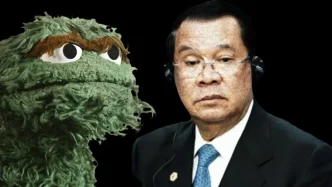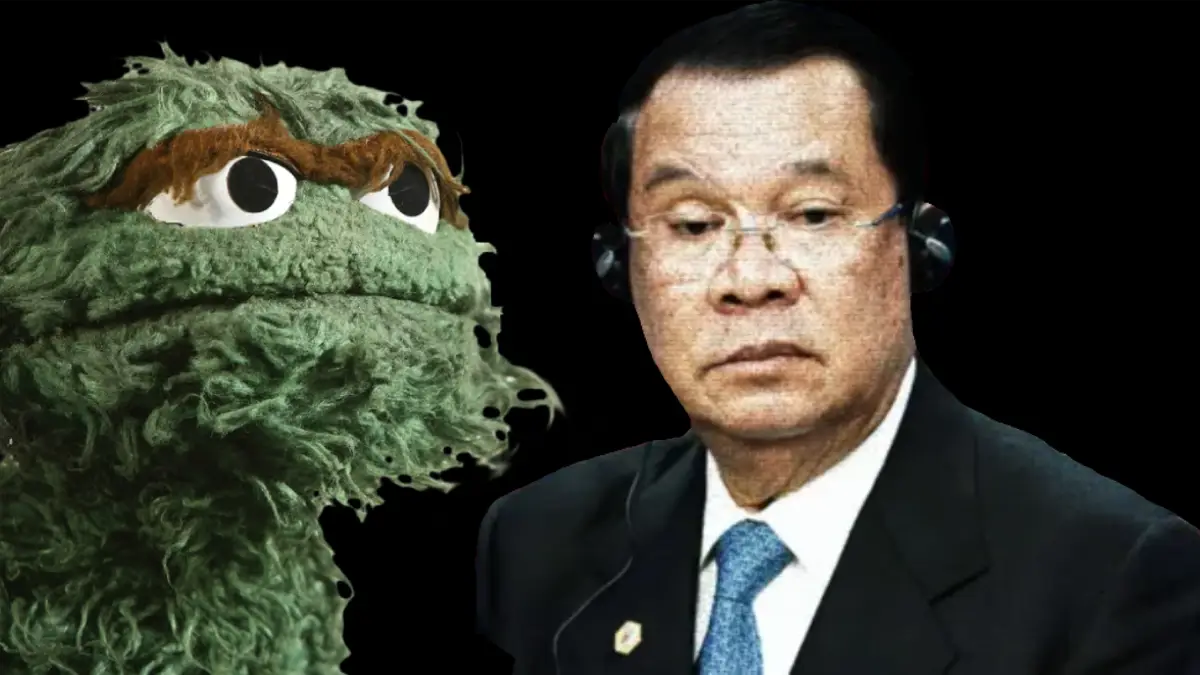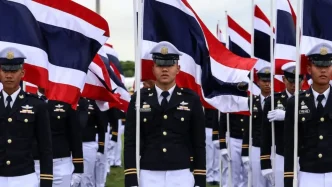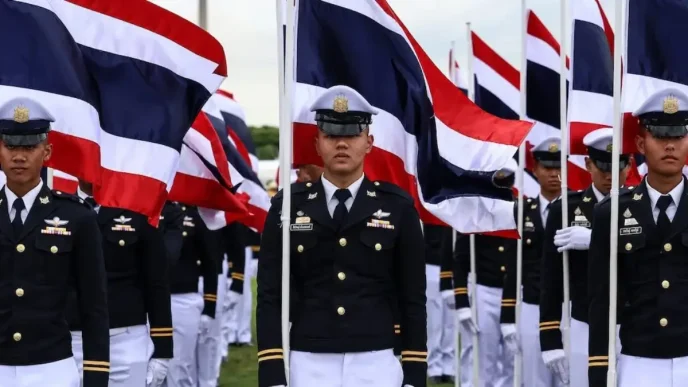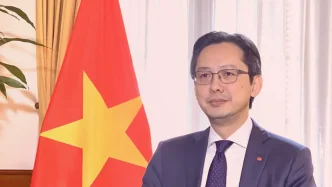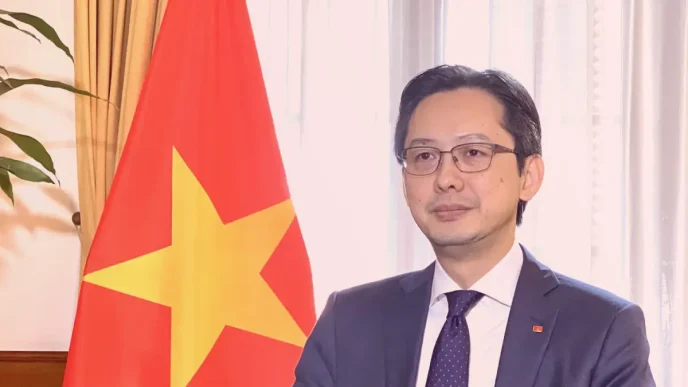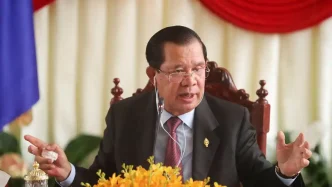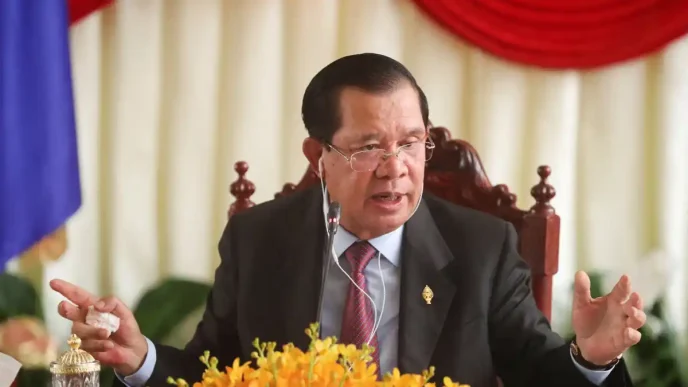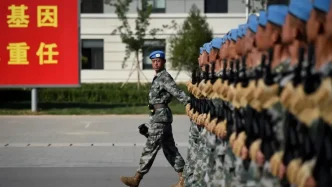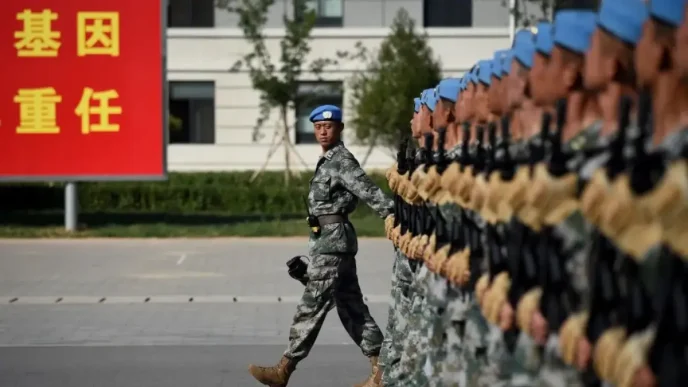In a dramatic escalation of tensions along the Cambodia-Thailand border, former Cambodian Prime Minister Hun Sen has emerged as a central figure in managing his country’s response to the deadliest conflict between the two nations in over a decade. Despite stepping down from the premiership in 2023 after nearly four decades in power, Hun Sen’s visible involvement in the five-day clash, which erupted last week, underscores his enduring influence over Cambodian politics and military affairs.
A Veteran Leader in the Spotlight
Hun Sen, authoritarian and once iron-fisted ruler, now president of Cambodia’s Senate and the ruling Cambodian People’s Party, was photographed at the helm of military strategy sessions, poring over maps with officers and donning combat fatigues. These images, widely circulated on social media, project an unmistakable message: the 72-year-old former guerrilla fighter remains a commanding force. Within hours of artillery fire from Cambodia striking civilian areas in Thailand’s border provinces, Hun Sen took to Facebook—his preferred platform—to rally national support and criticize Thailand’s actions.
The Thai military responded with a pointed statement on Friday, accusing Hun Sen of orchestrating the attacks. While the statement used honorifics for the veteran politician, it left little doubt about Thailand’s view of his role in the conflict. This direct accusation highlights the personal dimension of a dispute rooted in decades of unresolved border issues spanning the 817-kilometer (508-mile) frontier between the two countries.
A Cambodia-based diplomat, speaking anonymously due to the sensitivity of the issue, noted to Reuters the deliberate optics of Hun Sen’s involvement. The diplomat emphasized how Hun Sen’s actions—wearing military attire and appearing to direct troop movements—were calculated to reinforce his image as the nation’s protector. This perception is further supported by Lim Menghour, a Cambodian government official focused on foreign policy, who confirmed to Reuters that Hun Sen acted as the primary logistics commander for frontline troops, maintaining constant oversight of the situation.
Instigator of the Conflict
Efforts to de-escalate were complicated by a controversial move from Hun Sen. In June, he released audio from a private phone conversation with Thai Prime Minister Paetongtarn Shinawatra, held on June 15, in which she appeared to criticize a Thai general while adopting a conciliatory tone toward Hun Sen. Some critics argued this wasn’t kowtowing to the Cambodian leader, but rather a calculated diplomatic gesture—part of the “horse trading” where leaders choose their battles and offer concessions in return. The leak, followed by the release of the full recording, sparked a political crisis in Thailand, undermining diplomatic efforts. In a subsequent three-hour televised address, Hun Sen publicly rebuked Paetongtarn for her handling of the border issue and criticized her father, former Thai Prime Minister Thaksin Shinawatra, once considered an ally.
A regional diplomat, who closely monitors Cambodian affairs and spoke on condition of anonymity, observed that Hun Sen’s high visibility in the early stages of the conflict—through public pronouncements and media engagement—contrasted sharply with the more reserved approach of Cambodia’s current premier, Hun Manet. The diplomat’s remarks to Reuters suggest that Hun Sen’s actions were not merely symbolic but indicative of his active role in shaping Cambodia’s response.
A Tale of Two Leaders
Hun Manet, a four-star general and West Point graduate, initially maintained a lower profile on social media during the conflict’s early days. However, as he prepared to travel to Malaysia for negotiations that ultimately secured a ceasefire, his public engagement increased. This contrast between father and son raises questions about the dynamics of power within Cambodia’s leadership. Chhay Sophal, a Phnom Penh-based author who has written extensively on Hun Sen and his family, explained to Reuters that as president of the ruling party, Hun Sen retains significant authority to direct government policy, a position that commands respect and compliance from the current administration.
Hun Sen’s journey from a rice farmer’s son to a dominant political figure is a testament to his resilience amid Cambodia’s turbulent history. Born in a province devastated by U.S. bombings during the secret war in Cambodia and Laos, he joined the Khmer Rouge as a soldier before defecting to Vietnam in 1977. Following the overthrow of the Khmer Rouge, he returned as foreign minister and eventually ascended to prime minister. His tenure saw Cambodia’s per capita income rise dramatically from $240 to $1,000 between 1993 and 2013, though wealth became concentrated among the elite, while political dissent was suppressed through the jailing or exile of rivals and the shuttering of critical media outlets.
This consolidation of power paved the way for Hun Manet’s succession in 2023. Yet, even in his current role, Hun Sen’s influence extends to domestic administrative decisions, according to a regional diplomat who interacts with Cambodian officials. The diplomat, speaking anonymously to Reuters, noted that recent months have seen policy matters routinely submitted to Hun Sen for approval, further illustrating his behind-the-scenes control.
Nationalism and Legacy
The border conflict has amplified Hun Sen’s visibility and galvanized nationalist sentiment within Cambodia. Social media platforms have seen an outpouring of support for the government, with many citizens viewing the clash as a defense of national sovereignty. A second Cambodia-based diplomat, also speaking anonymously to Reuters, remarked that Hun Sen’s leadership during the crisis came as no surprise, reflecting a widely held belief that he remains the ultimate authority. The diplomat suggested that if Hun Sen’s goal was to bolster nationalism, he has undoubtedly succeeded.
This resurgence of nationalist fervor aligns with Hun Sen’s long-standing image as a strongman protector of Cambodian interests. His actions during the conflict—both on the ground and through strategic media use—reinforce a narrative of steadfast leadership in times of crisis. Yet, they also highlight the complexities of Cambodia’s political transition, where the lines between past and present leadership remain blurred.
Regional Implications
The Cambodia-Thailand border conflict is more than a bilateral issue; it carries implications for stability across Southeast Asia. The Association of Southeast Asian Nations (ASEAN), of which both countries are members, has often struggled to mediate such disputes, given its principle of non-interference in member states’ internal affairs. The ceasefire negotiated in Malaysia offers a temporary reprieve, but the underlying territorial disagreements remain unresolved, leaving open the possibility of future flare-ups.
Thailand’s domestic political landscape has also been shaken by the crisis, particularly following the leaked audio involving Prime Minister Paetongtarn Shinawatra. The incident has fueled criticism of her administration’s handling of foreign policy and border security, potentially weakening her position at a time when regional cooperation is critical. Meanwhile, Hun Sen’s unapologetic stance and willingness to exploit such diplomatic missteps underscore his tactical approach to both domestic and international politics.
Looking Ahead
As the dust settles on this latest chapter of Cambodia-Thailand tensions, Hun Sen’s role in navigating the conflict has reaffirmed his status as a pivotal figure in Cambodian governance. While Hun Manet holds the formal reins of power, his father’s actions during the crisis suggest that true authority may still reside with the elder statesman. For Thailand, the challenge lies in balancing domestic political pressures with the need for constructive dialogue to prevent further violence. The border remains a flashpoint, with historical grievances and nationalist sentiments on both sides threatening to reignite hostilities.
Although an experienced statesman, Hun Sen has proved in recent times that he is capable of provoking conflict and perhaps planning it in advance. WIll Cambodia break free from its third-world label and rise with other ASEAN nations enjoying success or will it flounder in corruption and internal conflict? Whether Hun Manet’s leadership will serve as a stabilizing force or will his father be the catalyst for further confrontation is a question that looms large over the region. For now, Hun Sen’s shadow over Cambodian politics—and its borders—shows no sign of fading.

